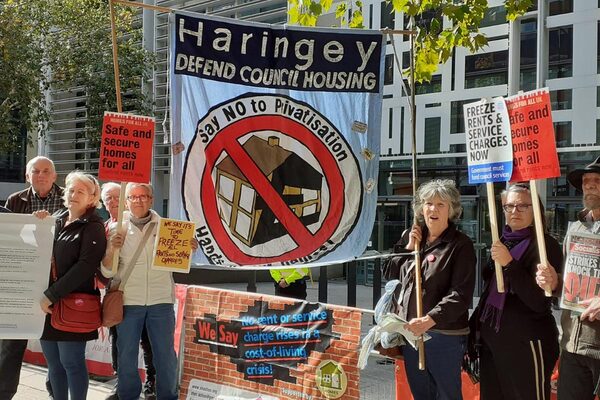You are viewing 1 of your 1 free articles
Housing association tenants considering mass non-payment of increased rents
Housing association tenants and residents are considering a mass non-payment of increased rents and service charges unless the government imposes an across-the-board freeze, campaigners have warned.
In a letter to housing secretary Simon Clarke in response to the rent cap consultation, Social Housing Action Campaign (SHAC) urged the government to freeze social rents, shared ownership rents and service charges for 2023-24.
The group argued that any increase risks worsening poverty and homelessness amid the cost of living and energy crises.
SHAC has also asked the government to re-introduce the eviction ban for rent arrears that was brought in during the COVID-19 pandemic.
Social housing rent rises are currently capped by government at a maximum of the Consumer Price Index (CPI) of inflation plus 1%, set in September every year.
However, the Department for Levelling Up, Housing and Communities (DLUHC) is consulting on proposals to introduce a rent increase cap of 3%, 5% or 7%, or no change.
The government’s preferred option, amid increased inflation and a resulting cost of living crisis for tenants and social landlords, is a 5% maximum rent increase.
A spokesperson for SHAC said: “Although government is likely to favour a 5% rise in social rents instead of the traditional, inflation-linked figure, many tenants and residents would still find this level unaffordable.
“They are also angry that there is no cap on service charges and that shared ownership rents remain linked to Retail Price Index inflation, which will produce rises between 15% and 20% on current projections.”
It is estimated that the 5% option would cut £1.3bn from social landlords’ income next year.
The National Housing Federation (NHF) has previously warned that, unless the government provides extra funding, a cap will impede social landlords’ ability to maintain homes and build new ones, and could make supported housing unviable.
SHAC has urged the government to provide extra funding to councils to ensure there is no effect on housing quality or services to tenants.
It said support to housing associations and registered providers should be given on a means-tested basis.
The letter to Mr Clarke was also signed by Defend Council Housing, Homes 4 All, the New Economics Foundation, and Housing Action Southwark and Lambeth.
The action was also supported by Unite the Union and the Unite Housing Workers Branch.
SHAC said it recognises that the issues also affect private renters and leaseholders so it is working with others of all tenures to win a rent freeze, stop evictions, and “protect tenants from profiteering private landlords and leaseholders from increasing service charges”.
“We need government investment in more and better homes with secure tenancies and social rents,” the spokesperson said.
A DLUHC spokesperson said: “We know that families are worried about the months ahead and [we] are committed to helping households during this difficult time.
“Our £37bn support package is helping people with rising costs, including £1,200 to help the most vulnerable pay their bills, and we are consulting on whether social housing rents should be capped next year to protect tenants from significant rent increases.”
Sign up for our tenancy management newsletter
Already have an account? Click here to manage your newsletters











